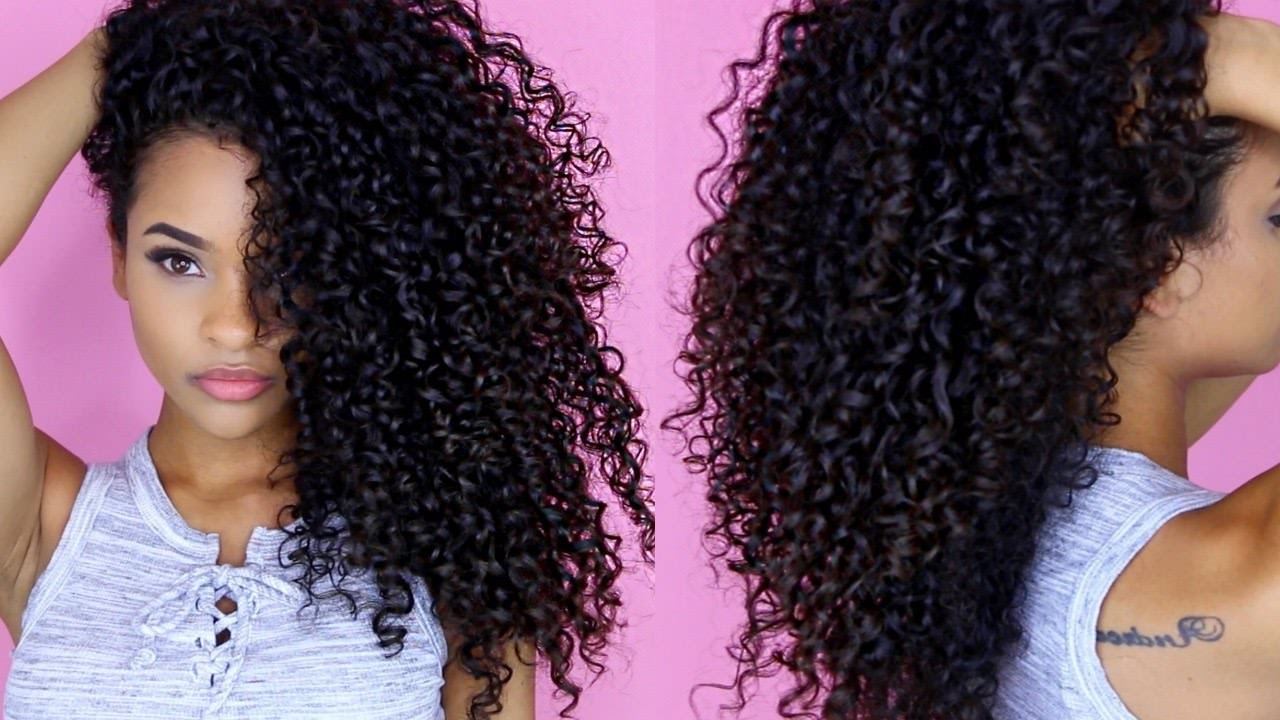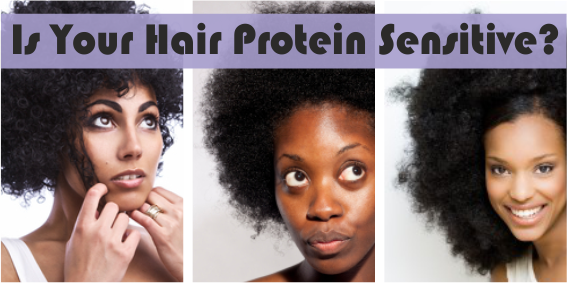Many ladies think that they are protein sensitive. Are they denying their hair the necessary strength it needs to retain growth?
Protein sensitivity is a sometimes controversial but always a hot topic in hair care. Simply put, protein sensitivity is when hair will overreact in the presence of protein making it dry and brittle and more prone to breakage. On the other hand, in the presence of constant protein, ALL hair will behave this way, so how can you tell if you are actually protein sensitive or if you’ve simply been using too much protein conditioner?
It’s amazing how quickly people will declare themselves protein sensitive before looking at the facts. Recently a dear friend mentioned that she thought that she was protein sensitive. Her reason for this was that she had recently done an Aphogee two step protein treatment* and her hair had turned out hard and brittle. On touching her hair, I could see that she was right. She said that she’d followed the instructions on the bottle and deep conditioned straight after. I couldn’t think of why her hair would react like this when it usually responded really well to protein conditioners. I then asked her what she had used to deep condition after the Aphogee* and it turn out that she had used her favourite protein conditioner as “her hair always felt lovely after it”!
That was the problem. She had effectively done a double protein treatment! Instead of following up the Aphogee* with a moisturizing conditioner*, she had cancelled out the positive effects of the first protein treatment by adding more protein on top of it! I recommended that she co-wash her hair with a moisturizing conditioner* every other day for the next week or two and also reduce manipulation until her hair returned to normal.
Now maybe the above is an extreme example of someone getting it completely wrong on protein sensitivity. There are ladies who may use a regular protein conditioner which then causes an adverse effect on their hair but without trying a different brand protein conditioner, can they be sure that this is protein sensitivity or just a conditioner that did not agree with their hair?

Are you protein sensitive? Happily, this is a question that many curly haired ladies don’t need to answer. Protein does nothing but good things for our hair which craves the structure that protein provides to hold on to moisture that our hair needs. However, there are curly haired ladies who’s hair genuinely hates protein and as such they should continue with the moisturizing conditioners maybe every once in a while using light natural protein treatments like yoghurt or molasses.
There are some ladies however who are unsure if they are protein sensitive or not. Some days, their hair will ‘behave’ after a protein conditioner or treatment but sometimes, they get the dreaded dryness.
To answer the question, protein sensitivity is likely to occur when the subject is getting a good amount of protein in their diet and their bodies are efficient at using said protein. It’s likely that many of us have come across a person, male or female who’s nails grow long and strong naturally without any hardeners. Those people have bodies which are efficient at utilizing the protein that they are getting from their diet. In this instance, if they tried to use nail hardener, their nails would start breaking due to having too much protein and the same may be true for their hair. Protein conditioners in their case would likely be detrimental.
In my experience the people most likely to be protein sensitive are those with low porosity hair. If the hair is low porosity it means that the strands already have a good solid layer of cuticles covering the delicate inner portions of the strands. Extra protein on hair like this will only serve to make the cuticle layer hard and brittle, which in turn will cause breakage. If your hair is low porosity and you don’t manipulate it much then it’s possible that you are protein sensitive. Yet hair porosity changes the longer your hair grows, as time goes on protein loss in inevitable even among those with the lowest porosity strands. You may find it beneficial to use very light protein conditioners to fortify your ends as your hair starts to grow longer.
This is not a hard and fast rule but rather a guideline in proclaiming protein sensitivity. If your nails grow soft without much structure and break easily then clearly your body is not efficient at using the protein it gets or you are likely not getting enough protein in your diet. However, if at the same time your hair overreacts to a protein conditioner, the best thing to do would be to try another protein conditioner to see if that helps. If not and you are convinced that your hair is protein sensitive, then concentrate on moisturizing conditioners but increase the amount of protein in your diet.

Which ingredients should be used in making a non-protein moisturizing homemade DC ?
The Real Person!
For a moisturizing one I would suggest something oily like egg yolks (no whites) and avocado with a dash of coconut milk to loosen the mixture to a shampoo like consistency. There's very little that is completely protein free (as proteins are the building blocks of life!) but these 3 ingredients have low protein and more oil which will hold in the moisture from the water making it a moisturizing conditioner. 😉
this is a really great site, thanks for the great info. I am going to keep reading more of your stuff
Great site. A lot of useful information here. I’m sending it to some friends!
Greetings! This is my first visit to your blog! We are a team of volunteers and starting a new project in a community in the same
niche. Your blog provided us beneficial information to work on.
You have done a marvellous job!
Wow that was strange. I just wrote an very long comment but after I clicked submit
my comment didn’t appear. Grrrr… well I’m not writing all that
over again. Anyways, just wanted to say excellent
blog!
This topic helped me with a non hair related issue.
I’ve always had long strong nails; but recently they have become brittle, dry and keep breaking. At first I thought it was because I’ve stopped drinking as much water, however just reading this jogged my memory that I used a nail hardener a couple of times this month.
Thanks so much I now know the cause of my nail breakage, at the same time got a head’s up to being protein sensitive.
I USE A PROTEIN SHAMPOO AND CONDITIONER WITH EVERY WASH BUT MY HAIR IS STILL BREAKING AND SPLIT END. IF PROTEIN IS SUPPOSED TO STOP BREAKAGE WHY IS MY SO DAMAGED?
I have a problem with my hair shedding since I started taking birth control pills. It started breaking off to the point where I did a big chop. I switched to a lower dose. That didn’t work, now I replaced it with another birth control: IUD. I’ve been using this since May’s 2014. My hair looks so thin. I started taking hair vitamins, is there anything else I should be doing to help my hair from excessive shedding?
Hi, I just found your blog and I think it’s great! Thank for all the helpful info. For years my usual hair regime consists of washing my hair once a week using Phyto products. Then blow drying and flat ironing, from there I wrap or pin curl for the rest of the week without using any heat. My hair was healthy, excluding annoying split ends. For about seven weeks I put straight coconut oil on my hair everyday before I wrapped it but the split ends seemed to get worse. After a coconut hot oil treatment I noticed my hair had become completely damaged. It’s split not just on the ends, but in random places up the shaft. I’ve read that coconut oil is a protein. My nails are the strongest and hardest of anyone I’ve ever know. Does this sound like protein sensitivity? Thanks.
Alma, I have deduced that I have protein sensitive natural hair, based on the various research that I have done and my hair is dry and brittle. My question is::how do I moisturize my hair to aid to the repair and encourage growth again, or what can I use as a daily leave in for moisture? I have sisterlocks also